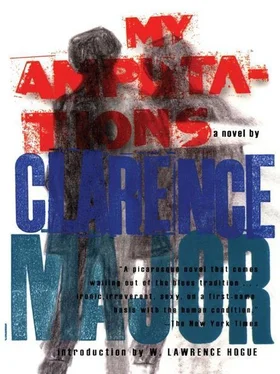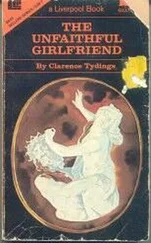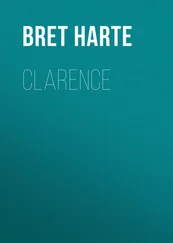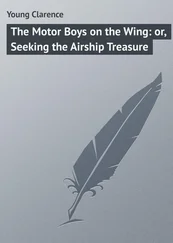Clarence Major - My Amputations
Здесь есть возможность читать онлайн «Clarence Major - My Amputations» весь текст электронной книги совершенно бесплатно (целиком полную версию без сокращений). В некоторых случаях можно слушать аудио, скачать через торрент в формате fb2 и присутствует краткое содержание. Год выпуска: 2008, Издательство: Fiction Collective 2, Жанр: Современная проза, на английском языке. Описание произведения, (предисловие) а так же отзывы посетителей доступны на портале библиотеки ЛибКат.
- Название:My Amputations
- Автор:
- Издательство:Fiction Collective 2
- Жанр:
- Год:2008
- ISBN:нет данных
- Рейтинг книги:5 / 5. Голосов: 1
-
Избранное:Добавить в избранное
- Отзывы:
-
Ваша оценка:
- 100
- 1
- 2
- 3
- 4
- 5
My Amputations: краткое содержание, описание и аннотация
Предлагаем к чтению аннотацию, описание, краткое содержание или предисловие (зависит от того, что написал сам автор книги «My Amputations»). Если вы не нашли необходимую информацию о книге — напишите в комментариях, мы постараемся отыскать её.
My Amputations — читать онлайн бесплатно полную книгу (весь текст) целиком
Ниже представлен текст книги, разбитый по страницам. Система сохранения места последней прочитанной страницы, позволяет с удобством читать онлайн бесплатно книгу «My Amputations», без необходимости каждый раз заново искать на чём Вы остановились. Поставьте закладку, и сможете в любой момент перейти на страницу, на которой закончили чтение.
Интервал:
Закладка:
Back to the South Side — a mistake. Mason was lonely and listening to music. Discharged, he heard the whine of: “Biscuit Roller Blues,” by Kokomo Arnold, Bessie Smith's “Black Mountain Blues,” and the lament of Marcus Garvey's dream: Hazel Meyers' “Black Star Line.” Then he met — in a moment when faith in his muse was a stuck slush pump — the cheerful, eighteen year old Judith Williams: in a living room? on a street corner? in a five and dime…? They hustled each other down to City Hall. She was warm: a catalyzing refinery. This civil attachment was to last: an assembly of flowing connections, wobbly Christmas tree lights, the wedding of sucker rod and clamp grip, spit, glue wrench and oil fever. Judith wanted to be a movie star: to shine, be bright: she was beautiful, beautiful: plum-cocoa colored — Indian, Central West Africa, shades of islands long beneath the ocean. She didn't know “Aunt Jemima Stomp,” from a foot-warmer. But had a wonderful, fluttering voice full of bird cries, torches, Dixie, Soul, branches in the breeze, trombone, sax, and it was easygoing, husky, sweet, any way she wanted it to be: a passionate canary without the screech, churp, tonsil exercise, ear-splitting C's, crooner's frogs, sentiment. Yet, y'yet: where could she go with it — except to the shower, the kitchen? That eat-dog world out there contained only a few successful satchelmouths, catchers of the wire, canners of music, side-makers. Mason loved to listen to her day and night. Listening often took his depression away. You know Judy's story: it's the same… She'd grown up with two younger sisters, an illiterate, cheerful mother who worked hard as nails house-cleaning for wealthy folk in Evanston, Trumbell Park, Oak Park, Elk Grove; from turnip greens-South, she knew no other way. Boop-poop-a-dop. I won't tell you the whole jaded story: but, this: there was a stepfather, not the father of any of the three. Never mind that Judy seduced him: at twelve. At seventeen she started dating and this shook him. He drank heavily, spied on her in theatres, drive-in snack bars. Tra-la-la. She came to her marriage curved with guilt (“Now, Mason, you know my ma must've known… How could she've not —?”) and hatred for her mother, herself. Judy and Mason got their first furniture from Sears and the Salvation Army: a let-out couch in a studio apartment with a kitchenette in a basement where they could hear rats in the walls playing chase scenes for screen tests. Mason wanted to be a writer, yes, still; and the Salvation Army typewriter worked and that mattered. As he worked at the kitchen table Judy sometimes sat beneath it playing “Doctor Feel Good.” Kids together, unschooled; fumblers with their Salvation Army spoons, broken cups, Sears blankets, forks, dusty books, knives, sheets, they had a sort of life, a hey-nonny-nonny chance, hope. Before Judy and Mason came to their whipped senses they were up to their hairline in oozy babyshit, soggy diapers; their ears clogged with choking screams from Salvation Army cribs. The tone of her songs changed: her pair of pipes stumbled and fell down from G above high C to a gutty, inky-dinky low E-flat. With half their Heart in the Church, half in the State, the couple felt trapped between the Devil and Next Month's Rent. C above high C was a thing of bygone giggle-time. Yet Judy held off on the Blues — for, uh, two months. Okay? Then wham: into them lip-quivering mammies she dug: choking up “If I'd Listened To My Mama I Wouldn't Be In This Mess Today,” with the “Bearcat Shuffle” body-shakes. Stingy welfare checks were stolen from their broken mailbox, and (white folks on TV talk-shows Sunday mornings kept saying “If they'd only try to do something for themselves and get off welfare, they'd… ”) the babies, three, no, four, no, five, were all crying at once, midnight, sun-up, three in the afternoon tea-time, anytime. Their Salvation Army washing machine broke down like their yellow-back radio with the 1948 dials: every month. Repair bills came wearing ski masks. The Platters didn't help with their high harmonizing. Mason didn't feel so smart anymore, was less of a smartass, a pisser-in-pockets, a sitter-on-the-dunce-stool, a spitball-thrower. He did consider robbing a bank. But the nerve was on a long vacation, down in some swampy terrain where the blood was thin, cool. He was waiting for a telegraph message: about what? The future? He tried playing the ponies but gave up the sport of kings when, first time out at Arlington, he went to the dogs in a photo-finish. The South Side was a madhouse of stumbling losers two-timing playgirls doublecrossing husbands failures and sneaky wives in search of a break in the flux; Muslims, junkies, devout simple-minded fire-and-brimstone-church-going handclapping holy folk. Judgment Day was only theatre: this was another cantaloupe, a wopper, kicked dust. Who needed it? Judy and Mason had six children in the wink of a birthcontrolless eye. Even his mother, a tough, hard woman, felt sorry for him. Twins, then twins again, two boys, two girls then a boy and a girl: Linton, Arthur, Patricia, Tina, Keith and Irene. They had big hands and narrow hips like the Williams lineage. They had Chiro's eyes. Mason's mother's mouth; curly hair, full-moon faces, roller-skate-fast minds. Mason lost his interest in fucking. He considered jumping off the Wrigley Building, driving a Suzuki a hundred miles per hour into a stack of old bathtubs, hanging himself with the umbilical cord of a satyr-raped she-goat. Yet there was a small comfort obtained from the government's poverty report: at least they weren't alone. A caseworker pulled his coat, showed him why he felt a draft: “Listen, if you leave, she'll get twice as much… ” After many weeks of sizzling in the blues, juggling guilt, Mason took the step. Go go go. They had a strict tearful parting: strained: kissed all the brats, gave Judy one last sideways look of heartbroken disapproval. She looked him back: with strait-jacket-fury. They promised to keep in touch. But it was time. (He sent money — thousands — to buy his way emotionally and because he cared. Eventually, Judy was afraid he wanted to take them from her, so she started moving a lot, concealing her address, maintaining an unlisted number…) It was a private matter: the world had no business looking in on it. He was still lonely, had a firm weakness for Touch: warmth, friendliness, comfort, companionship: was still prisoner of his wing-tipped erections. Not a cold fish, he met Mary Lou the day he left Judy. Six months later she gave birth to triplets. Mason wanted to do King Oliver's “Alligator Hop.” Six …? What happened to eight and one? big universal everlasting nine? That was not the worst of it. He couldn't grab a handful of rods: he was hooked into her, flapping but caught firmly through the gums. Mary Lou, magical Mary Lou: mysterious, secretive, sucked him in slowly, grindingly, leaving him light-headed, restful, unable to move. She was tall, slender, strong, brownstone-brown. I could tell you endless stories about her, her shady past. But — another time. She was so clever the cute girl triplets were dead ringers for Mason. Yet he had no faith in the quality of his spit. Figuring he could get out later, in fair weather, he decided to spend the winter between Mary Lou's spread thighs. (Mary Lou's mother was a raggedy half-crazy baglady who secretly owned dozens of apartment buildings all over the South Side, a slumlord who ate out of garbage cans; her father, thirty years older than her mother, raised turkeys in El Reno, Oklahoma. Mary Lou had a crazy sister who played piano for a storefront church, was wedded to Jesus; and a younger brother: shot through the head in the Army while crossing in the wrong direction on a firing range in Weatherbeatened, Mississippi.) Mason was hopelessly stuck? Jude the Obscure — worse? he fucked and fucked till his house fell in! Mary Lou was a Queen Bee, all right: they fucked up a storm; steam rose from their rooms; lightning struck in the night. Trips to Cook County Hospital became so frequent they lost track of the brats they brought back. Like Frank Buck: they brought ‘em back alive! Mary Lou and Mason couldn't get near each other without going apeshit, ripping each other's clothes off: his tongue in her ear or her mouth full of his cock or… you name it. They'd lost any hope of extracting themselves from the abyss, the vortex. Every time he turned around she was unzipping his fly. (Celt watched from a distance but kept out of it. Mason's dream of becoming a famous writer took a walk.) Something had to be wrong in nature, ya know. All these babies and money problems gave Mason the “Coffee Grindin' Blues,” the “Dipper Mouth Blues.” He had a lot of names to memorize: plus he was still in touch with Judy and the kids… just down the street around the block up the avenue. This was a high price to pay just to have somebody be there. Although Mary Lou was an artist and sensitive and all, she was not talkative. He wasn't either but her silence seemed to compel him to flutter and stammer out an unending stream of obscure sentences adding up to intellectual void-filling nonsense. So love-making was their only natural, un affected event. Also Catholic, she was Mother Earth: fuck and be merry was her motto: populate the land, carry on the race. Plus she loved children, especially infants. Jude-Mason lay beside Mary Lou through the cold nights listening to her whimper: “Nobody can do me like Papa Cow Cow can do,” and clawing at him. She often imitated Sara Martin singing, “Eagle Rock Me, Papa.” But Mason was crying the “Bullheaded Woman Blues.” He lost his slave and it took three months to discover he wasn't qualified for unemployment compensation: hadn't been standing tall on the job long enough. He sneezed at snazzy dudes in the street: suspected Mary Lou was stepping out on him. (She was —and he was cheating, too. Ugly scene.) The welfare cycle hit: Mary Lou could become a prostitute and he could join a gang of thieves. Consider this: Mary Lou could confess to the priest and kill herself. The children might be adopted by happy, well-adjusted middle-class Negro families making it on the outskirts of town. (Liberal whites hadn't started adopting black kids yet.) Mason, in all fairness, could also kill himself. Everything after that… Smooth sailing? He split for New York.
Читать дальшеИнтервал:
Закладка:
Похожие книги на «My Amputations»
Представляем Вашему вниманию похожие книги на «My Amputations» списком для выбора. Мы отобрали схожую по названию и смыслу литературу в надежде предоставить читателям больше вариантов отыскать новые, интересные, ещё непрочитанные произведения.
Обсуждение, отзывы о книге «My Amputations» и просто собственные мнения читателей. Оставьте ваши комментарии, напишите, что Вы думаете о произведении, его смысле или главных героях. Укажите что конкретно понравилось, а что нет, и почему Вы так считаете.












